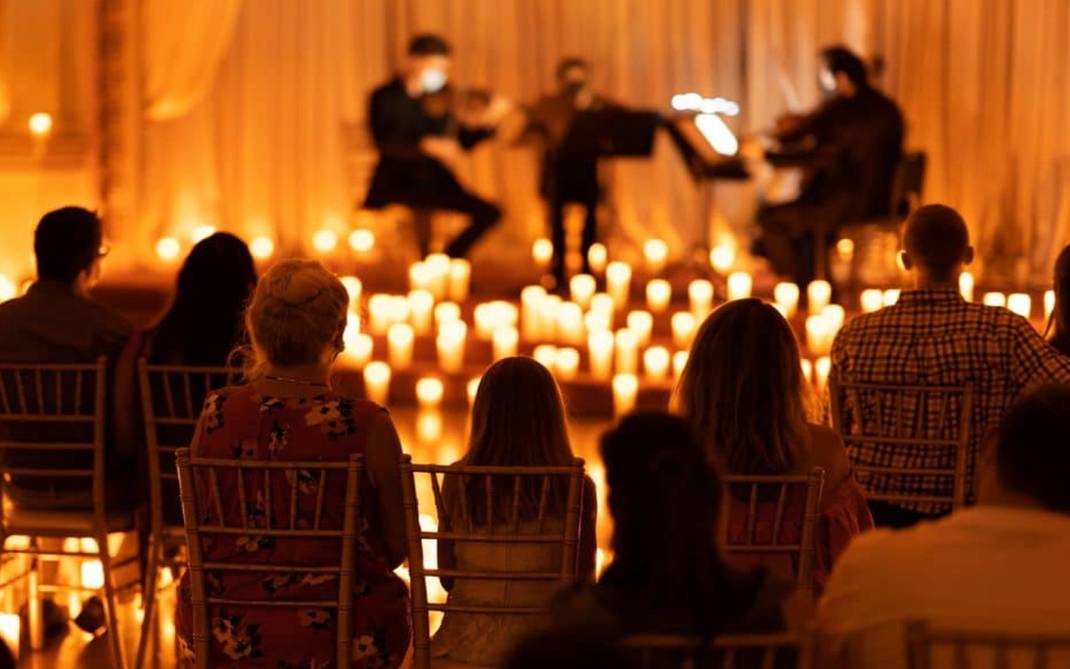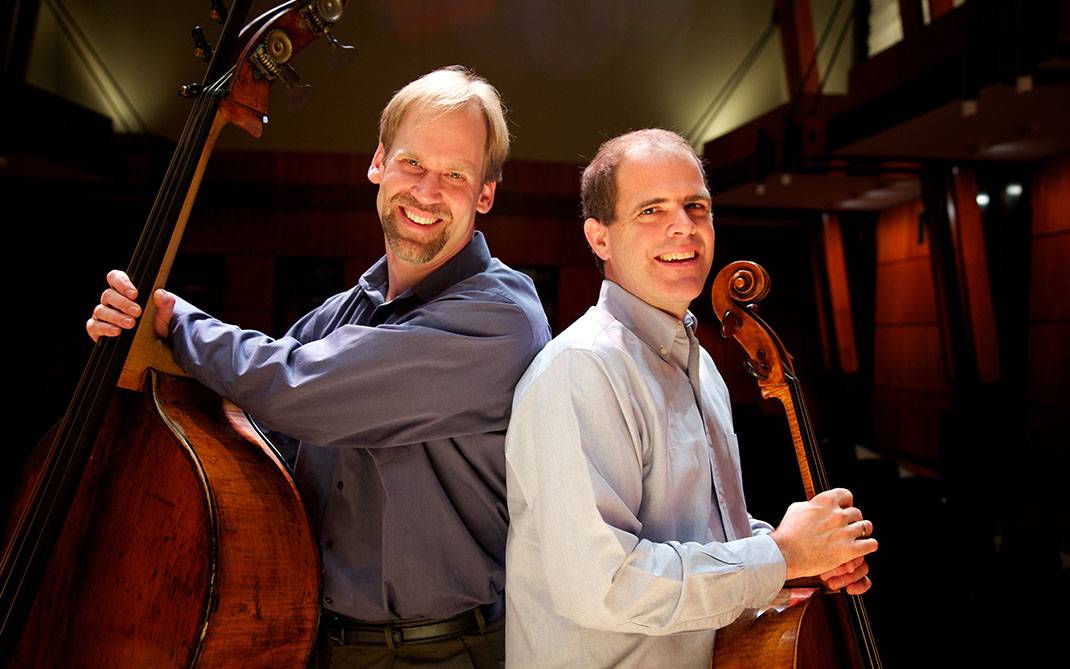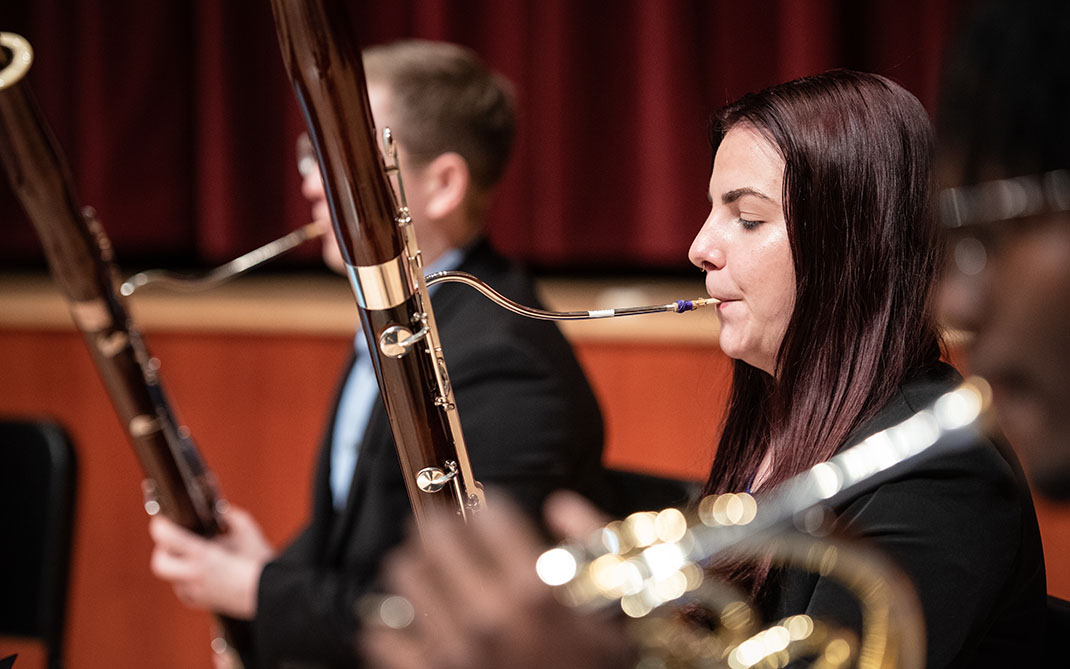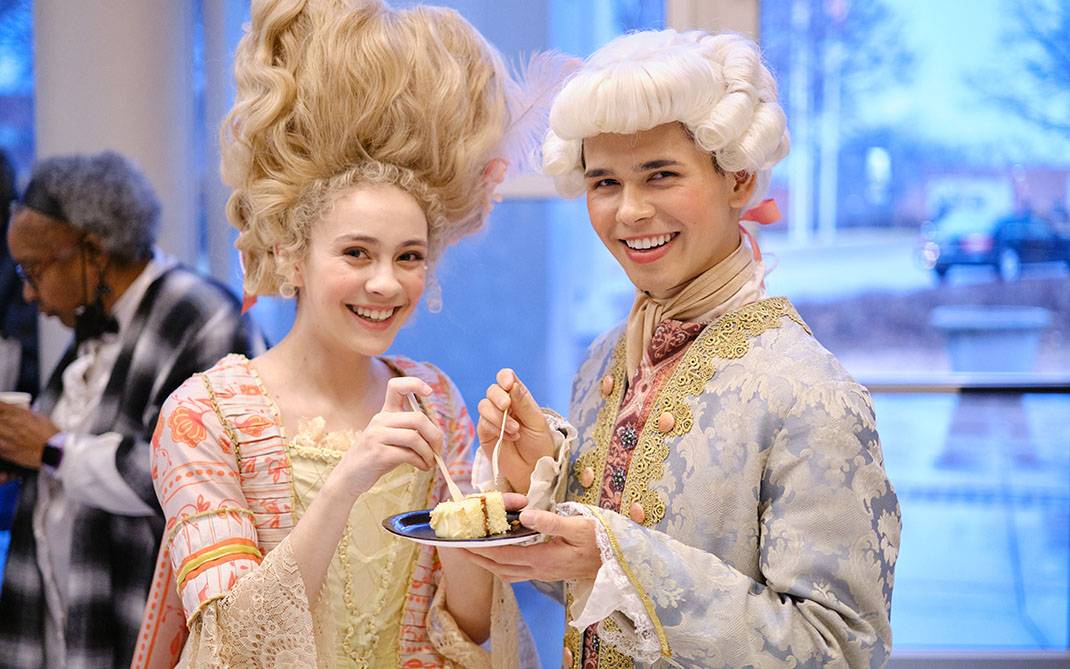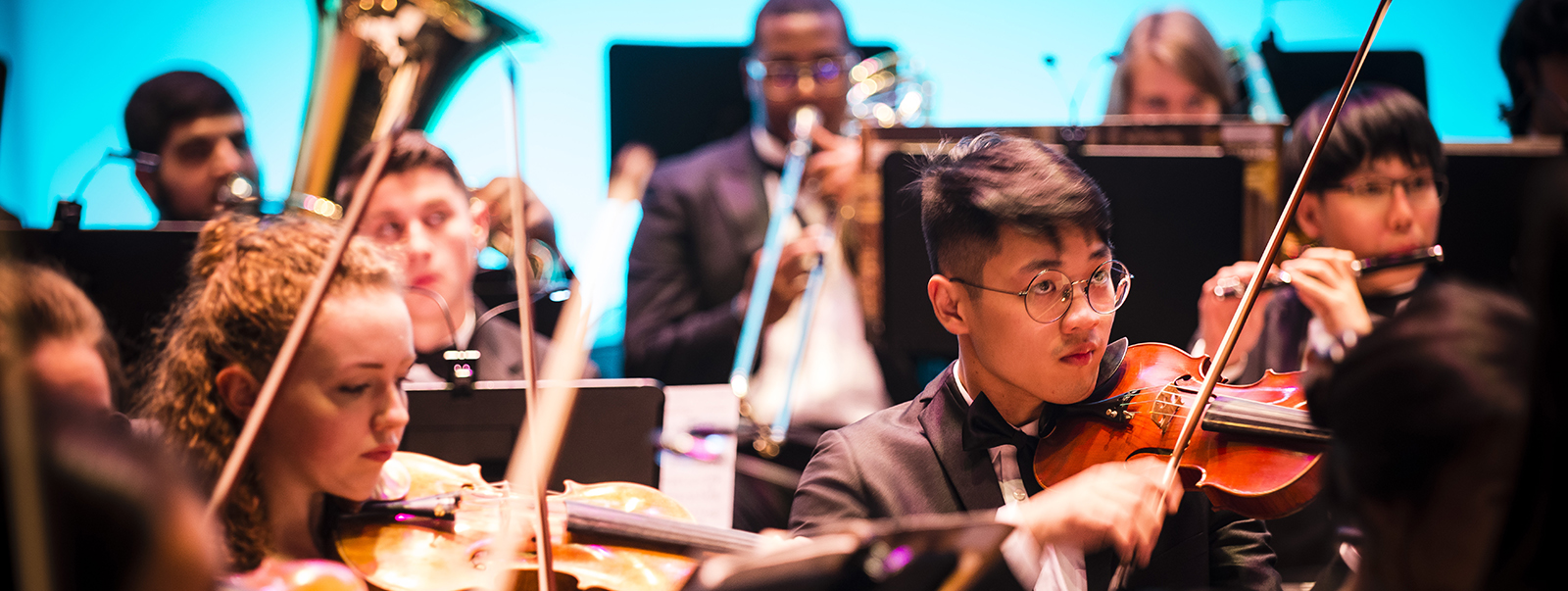5 reasons why UNCSA has one of the best music programs in the country
Known regionally and nationally for producing outstanding vocalists, composers and instrumentalists, the UNCSA School of Music stands apart from other schools as one of the best music programs in the country, both in and out of the classroom. From Emmy Award-winners to late night television performers, alumni who are some of the top musicians in the industry list the musical training received at UNCSA as a factor in their success.
We talked to current students to learn what they feel makes the School of Music so special:
1. World-class instruction
Fourth-year undergraduate voice major Peyton Marion believes that the School of Music faculty is a big factor of what makes this school one of the best. “All of our faculty are working artists, industry leaders and visionaries,” says Marion, who plans to pursue a Master’s in Vocal Performance post-graduation. “Our music school is working really hard to bridge the gap between tradition and innovation, looking to the greats of the past to inspire the work of the future.”
Brittany Thomas, a second-year French Horn graduate student, agrees, “I have not met a single teacher at this school who wasn’t willing to take the extra time to create with us, mentor us and encourage us. There have been too many times to count where a teacher has taken time outside of his or her required hours to help out, whether that be with an extra mock audition, advice on a project proposal or a moment of encouragement before a big performance.”
Marion adds that Dean Brian Cole is a big contributing factor to student success. “We have a really great Dean who really wants to see students step outside of the box and create their own version of what a conservatory education looks like.”
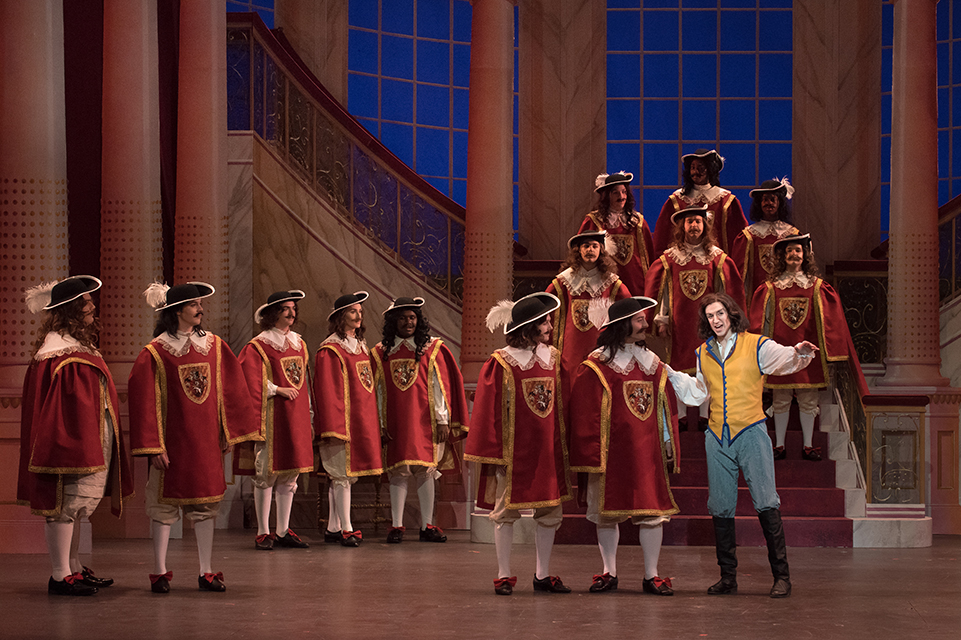
School of Music students performing the 2018 winter opera, "La Cenerentola." / Photo: Peter Mueller
2. Opportunities for performance
From a weekly mandatory Performance Hour, where students come together as a school and listen to each other practice and refine pieces for performance, to ensembles and orchestras, there are a seemingly endless number of opportunities for music students to perform. “My favorite performance so far was our UNCSA horn studio recital this year,” says Thomas. “It was my favorite because our teacher gave us complete control over creating whatever we wanted. She really allowed us to express ourselves and to explore what it means to be an artist, not just a horn player. Because we all were finding ways to express ourselves without constraints we were all full of pure joy for what we were doing.”
In the School of Music, you not only play for recitals and orchestras, but also collaborate in productions across all five conservatories. Students perform in plays, operas, full-length ballets and occasionally student films. “All five schools work together to create art that goes beyond any single discipline,” says Coby Schoolman, a French horn student who is currently a junior in the high school program.
3. Supportive campus community
After several hurricanes severely impacted the island of Puerto Rico—and much of the Caribbean—in the fall of 2017, graduate Composition student Luis Sanz was grateful for the support of the UNCSA community. “My favorite performance I have been a part of was performing with my ‘cuatro’ instrument in a benefit concert that the Drama School organized for my home island of Puerto Rico. As a Puerto Rican, I feel so grateful for their support and for making this fundraising happen.”
“While the talent here is exceptional, we are also a big family,” adds Schoolman. “Every week we come together for Performance Hour to see our peers perform and support them while they are on stage. Outside of classes, students are constantly playing for each other and talking about music and creating a more positive environment amidst the competitive nature of conservatory music.”
4. Hands-on experience with a variety of musical styles
Sanz, a Latin Grammy Award nominee, says that learning and having a comprehension of a variety of music styles is key in a well-rounded musical education. “I have had new experiences sharing and learning different kinds of music such as folk, jazz, popular and classical music.” Sanz adds that collaborating with a variety of instrumentalists and musicians has been a highlight of his time at UNCSA so far. “Since I came here, I have met and collaborated with different artists that travel around the world to our campus. For example, this year I got a great opportunity to work with the Grammy Award-winning contemporary music sextet Eighth Blackbird on a recording session for my piece ‘Transiciones.’”
5. Collaborative artistic environment
“Any school can stick you in a dress and a wig, put up some lights and throw you out on stage,” says Marion. “At UNCSA, not only are you learning the ins and outs of your craft, you are learning how the collaborative process comes alive. You are learning how to interact with your future colleagues… how to work with designers, stage managers, conductors and dressers—all the people whose craft intersects with and enhances your own. That is the UNCSA advantage.”
Thomas, who plans to continue to serve as an ArtistCorps member through UNCSA after graduation, adds, “I have not only worked on artistry, but I’ve also learned how to work in this industry and how to be a person that people want to work with.”
Become a part of the legacy.
March 13, 2018

